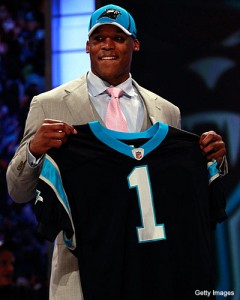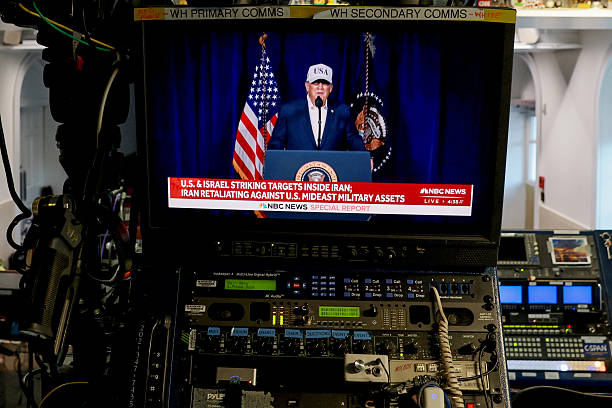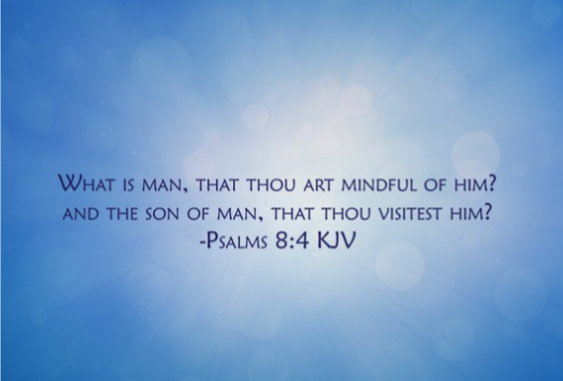(ThyBlackMan.com) Back in the autumn of 2003, when the Rush Limbaugh experiment was hitting its vapid apex at ESPN, the king of the right-wing ad-hominem attack suggested, on air, that black quarterbacks were the beneficiaries of a clandestine, league-wide affirmative action gambit. This empty claim ultimately lead to Limbaugh’s ignominious resignation. Nonetheless, in conveying his obvious discomfort with the emergence of a few talented black NFL quarterbacks, Limbaugh was actually taking the rare moment to speak beyond his key demographic of Sasquatch spotters and End of Days enthusiasts. While the right-wing radio god’s bizarre soapbox moment was overtly racist, Limbaugh was only musing about what many football fans, league personnel, and media heads were already thinking: Despite statistics that suggested otherwise, blacks simply weren’t suited to be NFL quarterbacks.
This disquieting sentiment has its roots in both bigotry and nostalgia — two deep-seated cultural factors that enable it to fester even in today’s so-called “post-racial” social climate. To accede to the fact that blacks are amply equipped to play NFL quarterback is to acknowledge that they, too,  have the ethical and intellectual wherewithal to be smart, resourceful, assertive leaders of all men — that they’re every bit as capable in the face of chaos and adversity as whites.
have the ethical and intellectual wherewithal to be smart, resourceful, assertive leaders of all men — that they’re every bit as capable in the face of chaos and adversity as whites.
Done and done, right?
Not so fast. Because, while us white people have become experts at publically lauding the virtues of racial equality, it’s the practice of following through on the substance of this premise where we often falter.
There’s an additional component to the insidious Limbaugh conundrum: the sacred image of the strapping, chisel-jawed drop-back passer, standing alone and poised (and white) in the pocket as chaos and violence envelopes him. It’s a time-honored image that springs to life at football stadiums and flat screens across the nation each fall — one of the remaining strands of American culture that continues to span generations. That’s right: Cannon-armed WASPS are as much an American institution as two-ton pickups, all-you-can-eat pasta buffets, and calling people who want universal health care “socialists.”
As such, in an increasingly multicultural, multiethnic, multilingual society, NFL quarterback is one of the last islands in the nation’s collective cultural imagination that remains the exclusive province of white males. Which means the image of a black quarterback calling the shots on a last-minute, game-winning TD drive is as alarming to a significant segment of the American populace as that of a Cambodian-American cowboy herding cattle on the prairie or an Arab-American firefighter carrying 9/11 victims to safety amidst smoldering ground-zero detritus. These images simply do not reconcile with the cosmogony of Anglo male as quintessential American hero. But Eli Manning delivering a game-winning TD pass in the waning moments of Super Bowl XLII does.
To get a sense of the collective fear over losing control of this sacred image, we need only look to the media gauntlet that recent collegiate QB sensations Cam Newton and Terrelle Pryor have been forced to navigate almost daily.
When ESPN Radio host Colin Cowherd prefaced his analysis of Pryor last week with, “Speaking of train wrecks…” he was only keeping with the zeitgeist of the commentariat, which has dubbed Pryor “raw,” “undisciplined,” a “project,” and “entitled.” Additionally, NFL scout Dave Razzano has characterized Pryor as someone who “needs to grow up.” Razzano, who apparently resides in a world in which most 22-year-olds regularly listen to All Things Considered en route to Sonoma wine-tastings, added, “I wouldn’t touch him with a ten-foot pole.”
As for Newton, despite an enormously successful senior campaign at Auburn, the number one draft pick has managed to summon the inner-Jonathan Edwards of virtually every scout and pundit with access to a microphone or laptop. For instance, did you know that, just last year, Newton mastered the seemingly impossible feat of winning the Heisman Trophy and a National Championship while (somehow) managing to maintain an abysmal work ethic and an insufferable personality? According to the experts, who have clearly let their personal biases creep into their professional assessments, Newton represents such an outlier. In fact, if Pro Football Weekly analyst Nolan Nawrocki has any say, Newton’s NFL epitaph will read: “has a fake smile, comes off as very scripted, and has a very selfish, me-first makeup.”
Meanwhile, the other highly-touted quarterbacks taken in the first round of the 2011 NFL draft – each of whom is white and less talented than Newton – garner Rudy-esque descriptions from most scouts and analysts. So what that they project as career backups? All is forgiven if you look like Captain America or Thor and possess the prized intangibles – like “leadership,” “work ethic,” and being “a guy that people follow” – that continually seem to elude black quarterbacks.
The now controversial Charlie Rose interview, in which Carolina Panthers owner Jerry Richardson recounted his pre-draft conversation with Newton to ask his future number one pick if he had any tattoos or piercings, may or may not have had anything to do with race. It does suggest, however, that an NFL quarterback’s physical appearance is still a determinant in whether or not teams choose to make him the face of their franchise. Richardson claims in the Rose interview that he wanted to “look him [Newton] in the eye, so to speak,” which begs the question: Has Richardson followed the same protocol with all his first-round draft picks?
This past Thursday, Cowherd defended Richardson’s pointed inquiry of Newton, explaining that the Panthers’ owner has every right to protect his brand. There’s actually some merit to this argument. Because of the cultural significance of NFL quarterbacks, many pro franchises promote themselves through the glittering smiles and hulking builds of their starting QBs. “Quarterbacks are the most important position in American sports,” announced Cowherd, underscoring the point that drafting a dud signal-caller in the first round could hobble a franchise in multiple ways, going forward.
But in the end, Cowherd unwittingly let his own prejudices muddy an otherwise rational argument. In doing so, he invoked New York Jets star cornerback Antonio Cromartie, who is also black, and whom the Jets re-signed to a lucrative contract last season despite his having, according to Cowherd, “eight kids with seven women.” Amidst his attempt to delineate the difference in magnitude between a quarterback’s appearance and that of any other star player, Cowherd stumbled into the realm of racial typecasting. As a result, the hidden subtext of his argument was brought into full chauvinistic relief by the utterance of five words:
…eight kids with seven women.
Contrary to his earlier statements, this wasn’t a discourse on a quarterback’s outward appearance. It was an indictment of stereotypical African American male behavior as perceived through the eyes of whites. It was about the importance of not behaving like a stereotypical black man as a requisite to being fully accepted as an NFL quarterback. Cowherd then concluded his piece by adding, “Appearance matters.” No, Colin: apparently it’s race that matters.
Written By Brock Cohen
Official website; http://www.twitter.com/brockdc

















JFH:
I do agree with a lot of your sentiments. Clausen, Tebow, Stafford, and other 1st Round white QBs have all kinds of tatoos and stuff on their bodies yet, they were made the faces of their franchises. Yes, Cams’ skin color is not the issue with Carolina however, it is and always be the issue in the NFL, NBA, MLB, and NCAA.
Look at how many black assistant coaches are very qualified to be head coaches in the NFL then, look at how many black head coaches are in the NFL.
Example:
Tony Dungy was hired in 96 to turn the Bucs franchise around and he did;(they made the playoffs 4 of the 5 years he was there after his initial hiring by the Glazer family). They miss the playoffs in 91 and Gruden is hired; who takes them to and wins a Super Bowl.
Example:
Tavaris Jackson had the ability to lead the Vikings yet, he was shoved under the bus off and on until they traded for McNabb. Not that Donavan can’t lead an NFL team (he took Philly to the NFC Chanpionship 4 years in a row and to the Super Bowl).
I just think that a lot of black QBs (past & present) do not have the right teachers in place to “teach the game of football”, as there should be. it’s all about and always will be about the $$$$$$$$$$$.
A lot of black QBs have the same and more intangiables that their white counterparts have however, the old “buggaboo racial” stereotypical profiling will continue as long as the NFL & team owners see their bank books overflowing; whether its a black or white QB leading their teams.
I’ll give another example that’s often overlooked, forgotten, and/or ignored:
*** Allen Iverson ***
John Thompson recruited him; despite his off the field behaviors & incidents. Why? Because in spite of himself, Allen was very smart in rising above what the media, NBA, its team owners, and even other players were saying about him; he just kept putting up big numbers and wowing crowds with his basketball skills; in turn, this kept the NBA owners’ bank books swelling.
Although, I disagree with some of his public approaches on certain issues as a black man; Allen Iverson wasn’t afraid to speak his mind, speak his value & belief system regarding the overall administartive/financial/legal infrastructure of the NBA (from the Commissioner down to the team water boy).
So all in all, black professional athletes do have the intelligence,work ethic, leadership abiliies, integrity, and athletic skills to run any NFL, NBA, MLB, and/or other professional sports franchise; just as some of their white counterparts do; white America still refuses to acknowledge and accept this as REALITY & FACT because, a lot of past/present pro black athletes refuse to bow down to the “establishment” in order to sound “politically correct” and/or be accepted by white society!!!
I hear the praise constantly, more from other races here at my job than blacks, about ALL black athletes in ALL sports.
So, the bottom line is $$$$$, regardless whether an athlete is black, white, asian, etc. etc. etc. Yet, the only difference in this dynamic still is RACE; when it comes to the High School, College, or Professional Black Athlete.
OH, PLEASE!!
What about Aaron Brooks? His cousin, Michael Vick? Steve McNair?
And, those are just the ones I readily KNOW – I don’t KNOW a whole lot of QBs, other than my team (the Saints).
Personally, I’m not Cam Newton’s fan, b/c I don’t believe a QB should run enough to actually post running numbers in a game. I feel it shows a “look at me” attitude, shows a lack of faith in your RBs, TEs, WRs. But, that’s a personal opinion on the job of a QB. His skin color has nuttin to do with it!